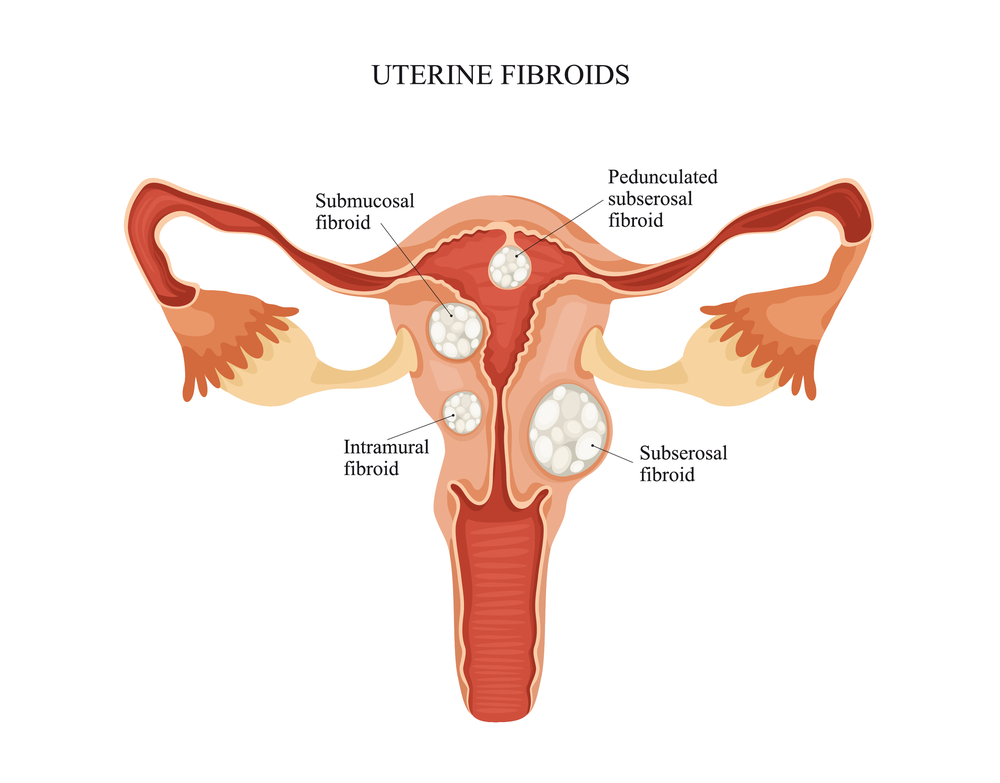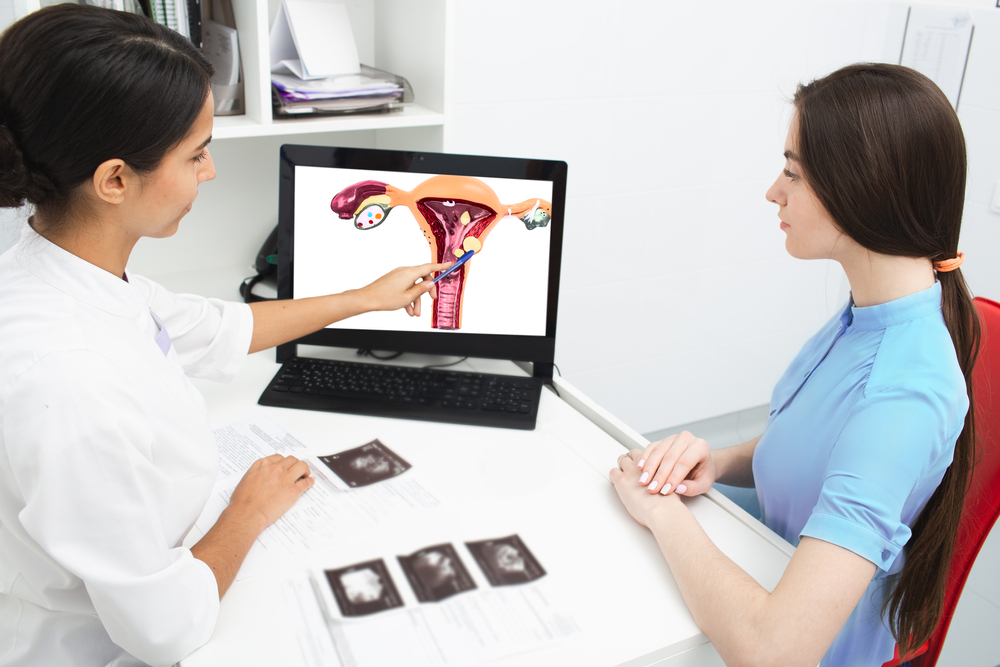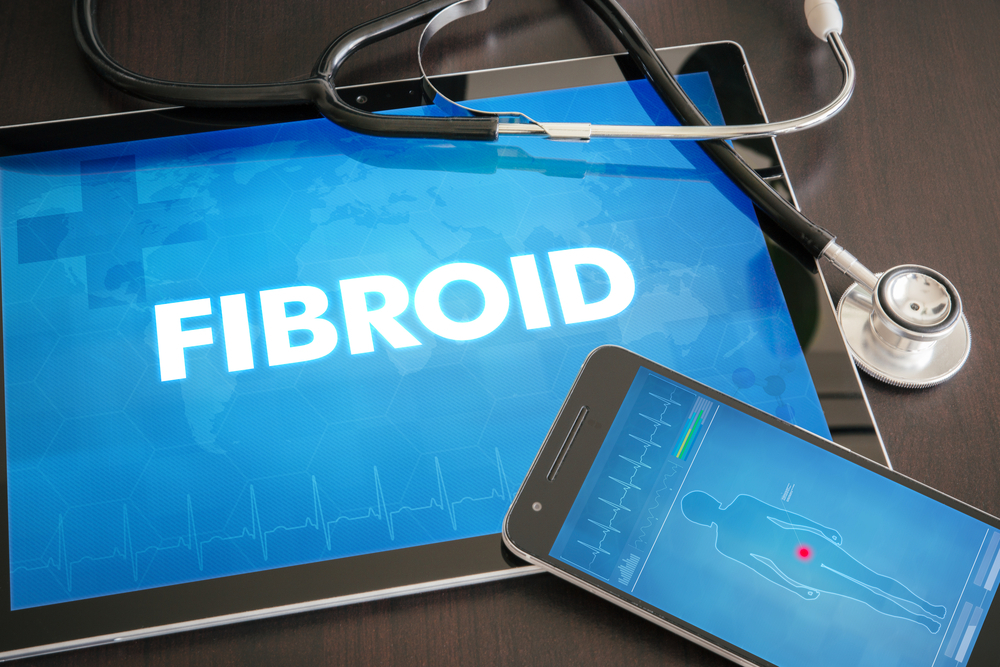What are uterine fibroids?
Uterine fibroids are essentially noncancerous or benign tumors that form in the muscle tissue of the uterus. Fibroids are also known as leiomyomas or myomas. They can emerge when a muscle cell located in the uterine wall starts to multiply and grow to develop a noncancerous tumor. Uterine fibroids could change the size or shape of the uterus and even the lower part of the uterus or the cervix.
Women who suffer from uterine fibroids are found to have more than one. However, it is possible to only have a single fibroid tumor that has developed. Whether uterine fibroids induce signs and symptoms or need treatment is completely based on their number, size, and location.
What are the types of uterine fibroids?
Fibroids are generally found inside or surrounding the main body or wall of the uterus. However, there are cases of fibroids developing in the cervix. On the basis of the location of uterine fibroids, they are categorized into three main types:
- Subserosal or those that form in the outer layer of the uterus. Roughly 55 percent of fibroids are subserosal in nature.
- Intramural or those that are located in the layers that contain muscles in the uterine wall. Around 40 percent of fibroids are intramural in nature.
- Submucosal or those that protrude inside the uterine cavity. Roughly 5 percent of fibroids are submucosal in nature.
Fibroids could even be connected to the uterus through a stalk which is medically termed as pedunculated. It is also possible that fibroids get attached to nearby organs or ligaments such as the bowel or the bladder. Fibroids are not commonly found to develop beyond the pelvic cavity.
How common are uterine fibroids?
Uterine fibroids are discovered in up to 20% of all women that are of reproductive age. Studies show that their development is more common among African-American women and is around 50-80 percent. The exact causes of why uterine fibroids develop are still unclear. However, there is proof that it might be due to a combination of environmental, hormonal, and genetic factors.
Can uterine fibroids decrease fertility?
Roughly 5-10 percent of women who suffer from infertility have uterine fibroids. The location and size of fibroids determine if fibroids could affect fertility. There are some examples of fibroids forming submucosal or inside the uterine cavity or getting very large, approximately greater than 6 cm in diameter intramural or inside the uterine wall.

However, most women who have uterine fibroids would not suffer from infertility. Women who have fibroids, along with their partners, need to be thoroughly assessed to discover other problems associated with fertility before fibroids get treated. This is when a fertility specialist could help in determining if fibroids could be hampering the chances of conception.
How can fibroids cause infertility?
There are many ways in which uterine fibroids could reduce overall fertility. Here are some of them:
- Uterine fibroids could change the shape of the cervix. This means that the number of sperm that enter the uterus could be affected. This also affects the chances of conceiving since the sperm needs to meet the egg to conceive a pregnancy.
- It can also cause a change in how the uterus is shaped. This could affect the movement of the embryo or even the sperm.
- In some cases, based on the position, fallopian tubes could get blocked due to the presence of fibroids.
- Uterine fibroids could impact the size available in the lining of the uterine cavity. The uterine cavity is where the embryo gets implanted, and this means that the position of the baby could get affected.
- The blood flow to the uterine cavity could also be affected due to fibroids. This could decrease the capacity of an embryo to implant or stick to the uterine wall and, subsequently, develop.
What happens to uterine fibroids during pregnancy?
Uterine fibroids are generally seen in around 2-12 percent of all pregnant women. However, in most cases, fibroids do not get large enough or do not cause an issue in the pregnancy. It is also seen that fibroids tend to grow in size, if at all, only during the first 12 weeks of the pregnancy.
What could happen with uterine fibroids during pregnancy?
The biggest concern among women who suffer from uterine fibroids in pregnancy is if the fibroid can raise the chance of having a preterm birth or suffering from a miscarriage. There are some cases where a uterine fibroid could outgrow the blood supply and induce severe pain. In such cases, it is best to be hospitalized immediately.

Fibroids can also affect the position of the baby in the uterus. Due to this, there is an associated increase in risk for cesarean section, preterm delivery, and even a miscarriage.
Is surgery required to manage uterine fibroids?
Every patient is completely different, and how to ideally manage fibroids is completely based on the recommendation of the doctor and the individual situation. In many cases, fibroids are managed without surgery, particularly during pregnancy. However, if a patient has conceived after getting fibroids removed, they need to remember to discuss the entire case with an obstetrician who has to deliver the baby. For childbirth, after getting a fibroid removed, it is often recommended that the patient undergoes a cesarean section as it is safer for both the mother and the baby.
Conclusion
Uterine fibroids are quite common in women throughout the globe and have the potential to affect their fertility in several different ways. They could have an impact on whether the egg and the sperm meet when a patient tries to conceive, whether an embryo gets implanted in the uterus, whether the pregnancy continues, and whether uterine fibroids could also have an impact on the positioning and growth of the baby during pregnancy.
Uterine fibroids are generally treated in the best way possible on a case-by-case basis. The treatment depends on the symptoms and signs caused by fibroids and might improve overall fertility. The method of treatment and if treatment is required to manage uterine fibroids is based on how severe the symptoms are and what the doctor recommends after consultation and diagnosis.

